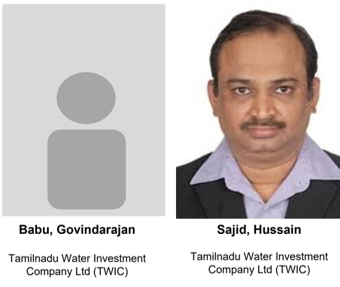The consortium of EfectroH2O project
We are an interdisciplinary team with scientists from academia and industry from Germany and India. The Coordination of the Project will be carried out at Goethe University. RWTH Aachen University, IITM, and TWIC already have many years of experience in the development of novel processing technologies and knowledge of the requirements that the technology must meet for use in industry. The efficiency of the technology will be evaluated in cooperation with Goethe University Frankfurt, IBACON, and EUROFINS Advinus by using effect-based methods specifically adapted to the requirements of high-brine industrial wastewater for a holistic evaluation.
Meet the Team
Goethe University, GU (Project Coordinator)
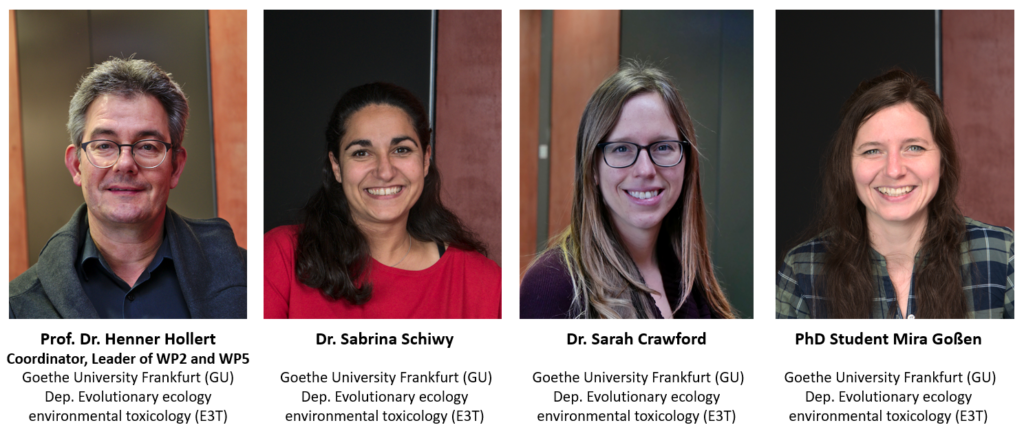
Prof. Dr. Henner Hollert is Professor and head of the department at the Evolutionary Ecology & Environmental Toxicology at the Goethe University, Franfkfurt. Aquatic and terrestrial ecosystems are impacted by human activities worldwide, with a particular concern regarding the growing number of chemicals currently present and those released in the environment. Harmful effects of environmental pollution on organisms can have serious consequences for populations and communities in ecosystems through impaired ecological function and structure. The ecological and evolutionary consequences of selection pressures from chemical and other environmental stressors can include effects on single genes or the genetic diversity within a population. The focus of our department is on the areas of research bridging the gap between evolutionary ecology and environmental toxicology. Thus, the department focuses on toxicological investigation of short and long-term processes and interactions of organisms, species, populations and communities against natural and artificial stressors. The department is also concerned with the development and application of modern bioanalytical methods in the field of molecular and cellular aquatic and sediment toxicology. Research areas include stress response in the context of genotoxicology, neurotoxicology, endocrine disruptors and Ah receptor agonists. Another focus of concern is the development of alternative methods to animal testing using early stages of life of Danio rerio, cell cultures and animal-free S9 preparations
Partner at Indian Institut of Technology Madras, IITM (Co-Project Coordinator)
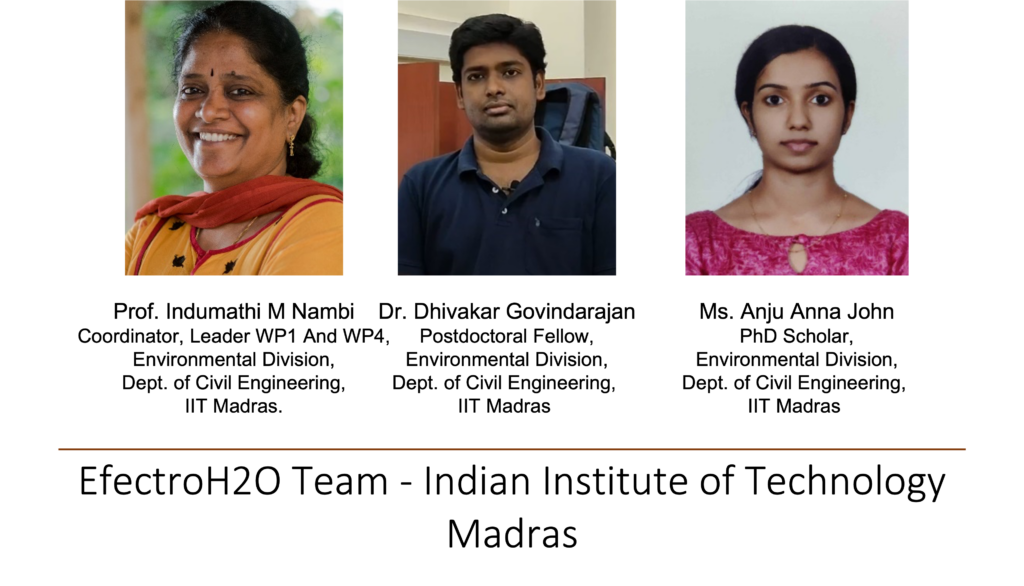
Indumathi M Nambi is a Professor at the Environmental and Water Resources Engineering Division in the Department of Civil Engineering, Indian Institute of Technology Madras, India. She holds a Ph. D. in Civil & Environmental Engineering from Clarkson University, NY. She has been a Post-doctoral Research Associate at University of Illinois at Urbana-Champaign before joining IIT Madras. She has research experience working on groundwater contaminant fate and transport and developing technologies for remediation involving hydrocarbon and solvent spills, and is currently involved in contaminant site investigations in India. She has published over 100 publications and owns 6 patents. She is a member of several expert committees in the state of Tamilnadu. She is an expert in development of low cost, low energy technology/treatment systems and in assessment of contaminated sites in pesticide industries, pharma industries, pulp and paper industries, petroleum industries, textile industries and tanneries.
Partner at RWTH Aachen University
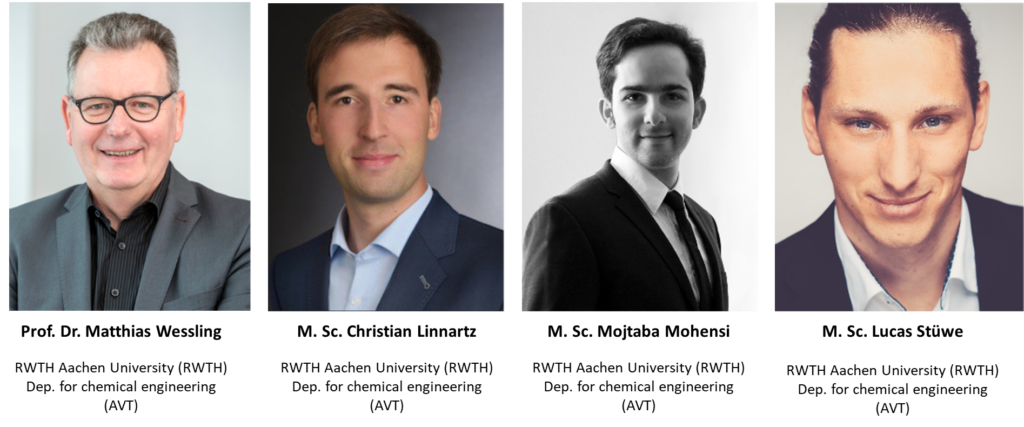
Since 2010 Prof. Dr.-Ing. Matthias Wessling is the head of the Chair of Chemical Process Engineering (AVT.CVT). The core research field of the chair focuses on the development and application of membrane technology for current global challenges. One field of CVT’s current research concentrates on transport of charge carriers in electrolyte solutions as well as ion exchange materials. A class of charged polymers that are often times used for ion selective membranes. A deep understanding of the transport mechanisms for ions in different electrolytic materials is necessary for the further development of processes like the electrochemical purification of drinking water or recovery of precious salts from process streams. At the same time, CVT is looking into ion transport mechanisms in microscopic systems like organic electronic components. Besides new processes like the flow capacitive deionisation for the continuous desalination of drinking water, CVT also focuses on the development of new membrane materials. By combining different polymers in a layer by layer approach membranes with eg. novel separation properties can be produced. Besides experimental facilities, numerical models are used at the CVT to simulate charge transport based on first principles allowing an explanation of experimental results on a fundamental level and a prediction for process improvement.
Partner at Institut für Biologische Analytik und Consulting ibacon GmbH
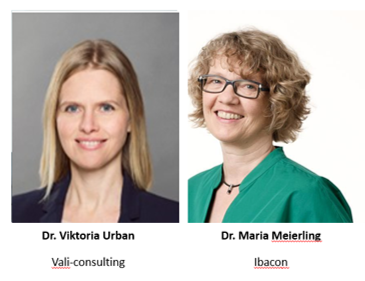
Partner at Eurofins Advinus Limited
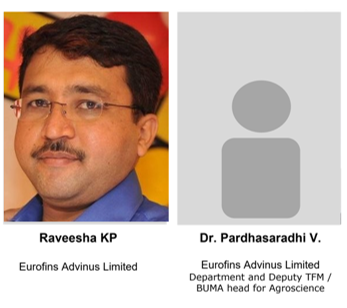
Partner at Tamilnadu Water Investment Company (TWIC)
